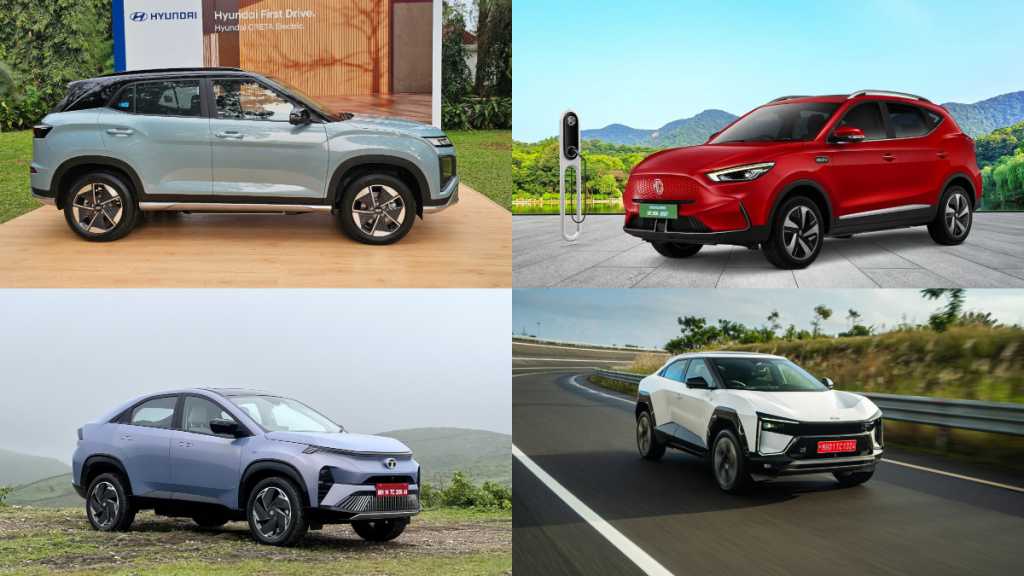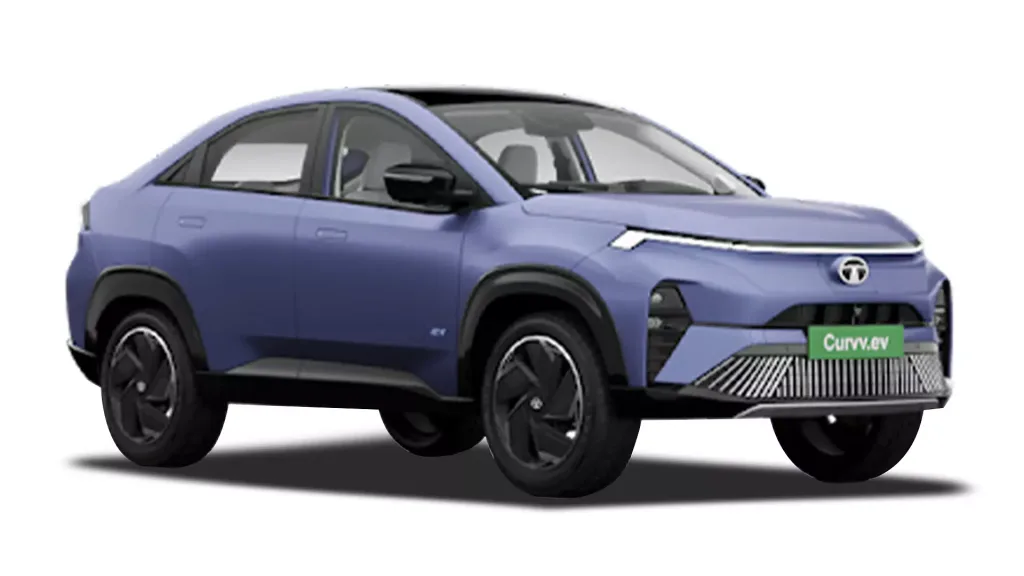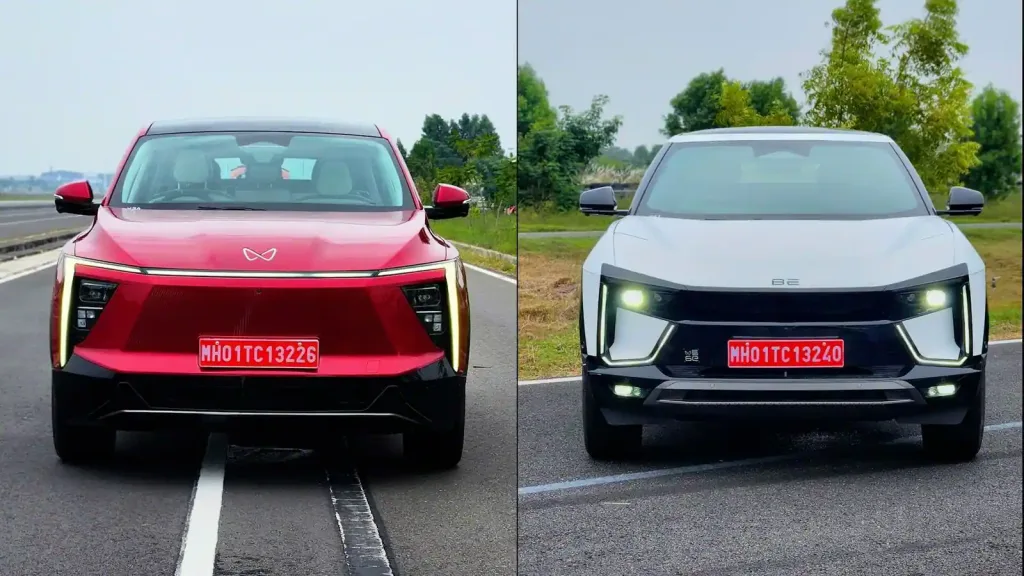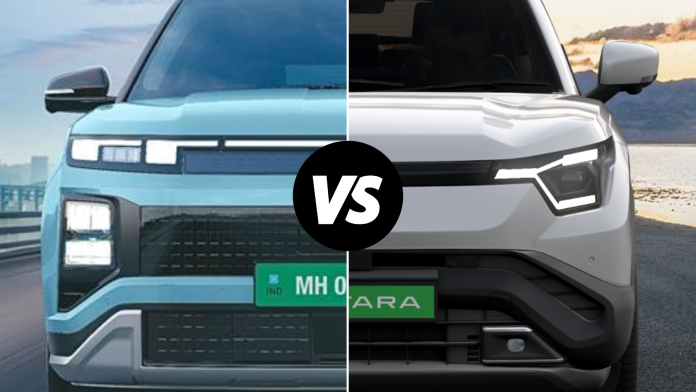Exclusive deep dive into India’s top 5 electric SUVs: Hyundai Creta Electric, Maruti e-Vitara, Tata Curvv EV, Mahindra BE 6, and XEV 9e. Uncover specs, technology, and market-changing innovations!
The EV Landscape: India’s Electrifying Transformation
Market Context
India stands at a critical juncture in its automotive evolution. The electric vehicle market is no longer a distant dream but a rapidly unfolding reality. With government incentives, increasing environmental consciousness, and technological advancements, EVs are transitioning from niche products to mainstream mobility solutions.
Economic and Environmental Implications
- EV Adoption Rate: Projected to reach 10% by 2025
- Carbon Emission Reduction: Estimated 20-25% decrease in urban transportation emissions
- Economic Impact: Potential job creation in manufacturing and support ecosystems

Comprehensive EV Comparison Table (Expanded)
| Brand | Battery Options | Range | Power | 0-100 kmph | Price Range (Ex-Showroom) | Charging Time (20-80%) |
|---|---|---|---|---|---|---|
| Hyundai Creta Electric | 42kWh & 51.4kWh | 390-473 km | 133-169 bhp | 7.9 seconds | ₹17.99 – ₹23.49 Lakh | 45-60 minutes |
| Maruti Suzuki e-Vitara | 49kWh & 61kWh | Up to 500+ km | 142-172 bhp | 8.6 seconds | To be announced | 50-65 minutes |
| Tata Curvv EV | 45kWh & 55kWh | 502-585 km | 148-165 bhp | 8.6 seconds | ₹17.49 – ₹21.99 Lakh | 40-55 minutes |
| Mahindra BE 6 | 59kWh & 79kWh | 535-682 km | 228-281 bhp | 6.7 seconds | ₹18.90 – ₹30.50 Lakh | 20-30 minutes |
| Mahindra XEV 9e | 59kWh & 79kWh | 542-656 km | 228-282 bhp | 6.8 seconds | ₹21.90 – ₹26.90 Lakh | 25-35 minutes |
Deep Dive: Technology and Innovation
Battery Technology Breakdown
Each manufacturer has invested heavily in battery research, focusing on:
- Energy Density: Improved lithium-ion cell configurations
- Thermal Management: Advanced cooling systems
- Longevity: Battery warranties extending up to 8 years or 160,000 km
Charging Infrastructure Considerations
- Home Charging: All models support 7.2kW AC charging
- Public Charging: Compatible with Bharat DC Fast Charging standards
- Smart Charging: AI-enabled charging optimization
Detailed Model Insights (Expanded)
1. Hyundai Creta Electric: Urban Mobility Redefined
- Technology Highlights:
- Proprietary Electric-Global Modular Platform (E-GMP)
- Integrated battery management system
- Over-the-air (OTA) software updates
- Smart regenerative braking with multiple intensity levels
2. Maruti Suzuki e-Vitara: Reliability Meets Electrification
- Technology Highlights:
- Suzuki-Toyota collaborative battery technology
- Advanced battery cell protection
- Integrated smartphone connectivity
- Predictive maintenance alerts

3. Tata Curvv EV: Design Meets Functionality
- Technology Highlights:
- Ziptron electric powertrain
- IP67 rated battery protection
- Connected car technologies
- Personalized driving modes
4. Mahindra BE 6: The Technological Powerhouse
- Technology Highlights:
- Born Electric (BE) platform
- Advanced driver assistance systems
- Augmented reality head-up display
- Predictive AI-driven range management
5. Mahindra XEV 9e: Premium Performance Electric
- Technology Highlights:
- Advanced aerodynamic design
- Multiple driving assistance features
- Intelligent power distribution
- Adaptive suspension technology
Ownership Experience and Total Cost of Ownership (TCO)

Comparative Analysis
- Maintenance Costs: 40-50% lower than traditional combustion vehicles
- Fuel Savings: Approximately ₹1.5-2 lakh over five years
- Government Incentives: Additional ₹1.5 lakh potential savings through subsidies
Market Predictions and Future Outlook
EV Adoption Trajectory
- 2025 Projection: 10-12% market share in passenger vehicles
- Investment Forecast: ₹50,000 crore in EV infrastructure
- Technology Evolution: Solid-state batteries expected by 2027
Conclusion: The Electric Era Begins
These five electric SUVs represent more than technological marvels; they symbolize India’s commitment to sustainable, intelligent mobility. With advanced features, competitive pricing, and reduced environmental impact, they’re not just vehicles—they’re mobility solutions for a progressive nation.


